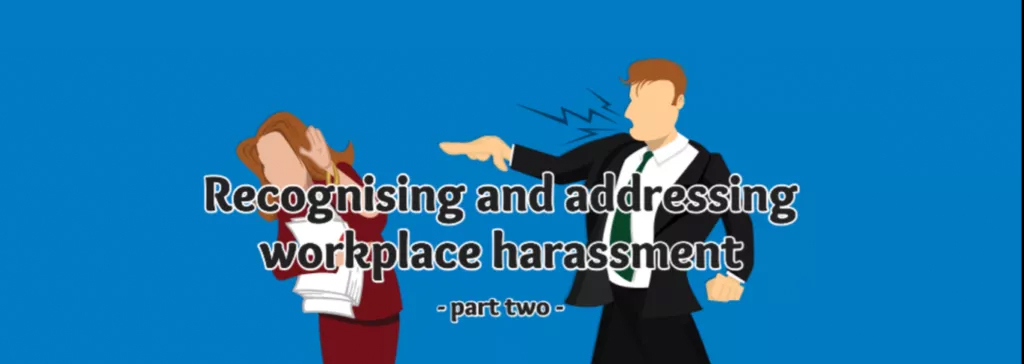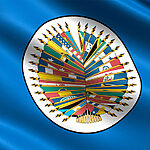Recognising and Addressing Workplace harassment – Part Two
Last month’s blog was part one on our harassment series, where we gave you an overview of the different types of workplace harassment and examined what staff members can do when they are considering filing a formal complaint. In this second part of the series, we will review the standard procedures for investigating harassment complaints and the […]
Recognising and Addressing Workplace harassment
Everyone deserves to work in an environment free of harassment. However, the significant number of complaints lodged every year proves that this is still a serious problem. This two-part blog it’s all about recognising and addressing workplace harassment. In this article, we will give you a general overview of the different types of misconduct that […]
Case law update: how international tribunals are enforcing the “nemo iudex in cause sua” principe
We have previously discussed the principle of nemo iudex in causa sua (Latin for “no one should be judge in their own cause”) on our blog and how a series of ground-breaking UNAT judgments were challenging the systems that many international organisations have in place to adjudicate disputes between them and their employees. One year on from those judgments, […]
I have used up all my sick days…now what?
What is sick leave? For many years, health and safety management has been a fundamental element of employer responsibilities in the wider context of staff welfare, which goes beyond the physical working environment and includes various services, facilities and benefits provided to employees for their intellectual and social betterment. Sick leave (or medical leave) is […]
The Impact of Climate Change on Human Rights
A famous fairy tale our parents used to tell us when we were children tells the story of a frog immersed in a pot of lukewarm water placed over a fire. The frog, unaware of the danger, finds the water pleasantly warm and continues to splash around happily. After a while, the frog begins to […]
The win-win of Disability Inclusion
The opportunity to work is a fundamental right that makes people independent, contributes to their professional and human development and, above all, allows them to feel like they are useful and fully contributing members of society. This opportunity should be given to all individuals and particularly to disabled persons, who, as stated in the […]
131st Session of the ILOAT: A snapshot into the mind of the Tribunal
The Administrative Tribunal of the International Labour Organization (ILOAT) deals with cases commenced by international employees against the international organisations they are employed with and that have recognized its jurisdiction. Nearly 60,000 international civil servants from 57 different international organisations rely on the judgements of this Tribunal in case of a labour dispute. The volume […]
Are you breaking up with me?
The legal considerations of an organisation leaving the UN Common System or the UN Joint Staff Pension Fund This article was first published in the FICSA Magazine, Edition 2, May 2020 “We don’t talk anymore” The UN common system (UNCS) applies common standards across a number of UN agencies. A key benefit to the system is […]
The impact of COVID-19 on employment disputes
Our working environments have changed. My goal in this post is to avoid using the most popular terms of 2020, such as ‘unprecedented’ or ‘pivot’, but it goes without saying that we all have to continually adapt to more and more working online. Let me offer three observations on how the pandemic has affected work […]


















